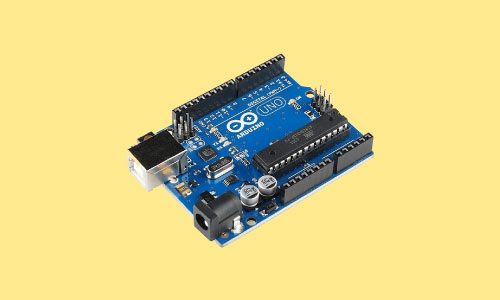Course Curriculum
| Unit 1- Basic Concepts | |||
| Module 1- What Is an Electric Circuit | 00:02:00 | ||
| Module 2-System of Units | 00:07:00 | ||
| Module 3- What Is an Electric Charge | 00:05:00 | ||
| Module 4- What Is an Electric Current | 00:08:00 | ||
| Module 5-Example 1 | 00:01:00 | ||
| Module 6- Example 2 | 00:02:00 | ||
| Module 7- Example 3 | 00:02:00 | ||
| Module 8- What Is Voltage | 00:07:00 | ||
| Module 9- What Is Power | 00:06:00 | ||
| Module 10- What Is Energy | 00:04:00 | ||
| Module 11- Example 4 | 00:03:00 | ||
| Module 12- Example 5 | 00:02:00 | ||
| Module 13- Dependent and Independent Sources | 00:05:00 | ||
| Module 14- Example 6 Part 1 | 00:04:00 | ||
| Module 15- Example 6 Part 2 | 00:01:00 | ||
| Module 16- Application 1 Cathode Ray Tube | 00:04:00 | ||
| Module 17-Example 7 | 00:04:00 | ||
| Module 18- Application 2 Electricity Bills | 00:02:00 | ||
| Module 19- Example 8 | 00:03:00 | ||
| Unit 2- Basic Laws | |||
| Module 1- Introduction to Basic Laws | 00:01:00 | ||
| Module 2- Definition of Resistance | 00:06:00 | ||
| Module 3- Ohm’s Law | 00:02:00 | ||
| Module 4- Types of Resistances | 00:06:00 | ||
| Module 5- Open and Short Circuit | 00:05:00 | ||
| Module 6- Definition of Conductance | 00:04:00 | ||
| Module 7- Example 1 | 00:02:00 | ||
| Module 8- Example 2 | 00:03:00 | ||
| Module 9- Example 3 | 00:03:00 | ||
| Module 10- Branch, Node and Loops | 00:07:00 | ||
| Module 11- Series and Parallel Connection | 00:04:00 | ||
| Module 12- KCL | 00:04:00 | ||
| Module 13- KVL | 00:03:00 | ||
| Module 14- Example 4 | 00:05:00 | ||
| Module 15- Example 5 | 00:02:00 | ||
| Module 16- Example 6 | 00:06:00 | ||
| Module 17- Series Resistors and Voltage Division | 00:07:00 | ||
| Module 18-Parallel Resistors and Current Division | 00:12:00 | ||
| Module 19- Analogy between Resistance and Conductance | 00:07:00 | ||
| Module 20-Example 7 | 00:03:00 | ||
| Module 21-Example 8 | 00:04:00 | ||
| Module 22- Introduction to Delta-Wye Connection | 00:06:00 | ||
| Module 23-Delta to Wye Transformation | 00:05:00 | ||
| Module 24- Wye to Delta Transformation | 00:07:00 | ||
| Module 25-Example 9 | 00:03:00 | ||
| Module 26- Example 10 | 00:15:00 | ||
| Module 27- Application Lighting Bulbs | 00:03:00 | ||
| Module 28-Example 11 | 00:05:00 | ||
| Unit 3- Methods of Analysis | |||
| Module 1- Introduction to Methods of Analysis | 00:02:00 | ||
| Module 2- Nodal Analysis with No Voltage Source | 00:15:00 | ||
| Module 3- Example 1 | 00:06:00 | ||
| Module 4-Cramer’s Method | 00:04:00 | ||
| Module 5-Nodal Analysis with Voltage Source | 00:07:00 | ||
| Module 6- Example 2 | 00:05:00 | ||
| Module 7- Example 3 | 00:13:00 | ||
| Module 8-Mesh Analysis with No Current Source | 00:10:00 | ||
| Module 9-Example 4 | 00:04:00 | ||
| Module 10- Example 5 | 00:06:00 | ||
| Module 11-Mesh Analysis with Current Source | 00:07:00 | ||
| Module 12-Example 6 | 00:08:00 | ||
| Module 13-Nodal Vs Mesh Analysis | 00:04:00 | ||
| Module 14-Application DC Transistor | 00:04:00 | ||
| Module 15-Example 7 | 00:04:00 | ||
| Unit 4- Circuit Theorems | |||
| Module 1-Introduction to Circuit theorems | 00:02:00 | ||
| Module 2-Linearity of Circuit | 00:07:00 | ||
| Module 3-Example 1 | 00:04:00 | ||
| Module 4-Superposition Theorem | 00:07:00 | ||
| Module 5- Example 2 | 00:04:00 | ||
| Module 6-Example 3 | 00:06:00 | ||
| Module 7-Source Transformation | 00:08:00 | ||
| Module 8-Example 4 | 00:05:00 | ||
| Module 9-Example 5 | 00:03:00 | ||
| Module 10-Thevenin Theorem | 00:10:00 | ||
| Module 11-Example 6 | 00:06:00 | ||
| Module 12-Example 7 | 00:05:00 | ||
| Module 13- Norton’s Theorem | 00:05:00 | ||
| Module 14-Example 8 | 00:03:00 | ||
| Module 15-Example 9 | 00:05:00 | ||
| Module 16-Maximum Power Transfer | 00:05:00 | ||
| Module 17-Example 10 | 00:03:00 | ||
| Module 18-Resistance Measurement | 00:05:00 | ||
| Module 19-Example 11 | 00:01:00 | ||
| Module 20-Example 12 | 00:04:00 | ||
| Module 21-Summary | 00:05:00 | ||
| Unit 5- Operational Amplifiers | |||
| Module 1-Introduction to Operational Amplifiers | 00:03:00 | ||
| Module 2-Construction of Operational Amplifiers | 00:07:00 | ||
| Module 3-Equivalent Circuit of non Ideal Op Amp | 00:10:00 | ||
| Module 4-Vo Vs Vd Relation Curve | 00:03:00 | ||
| Module 5-Example 1 | 00:09:00 | ||
| Module 6-Ideal Op Amp | 00:07:00 | ||
| Module 7- Example 2 | 00:04:00 | ||
| Module 8-Inverting Amplifier | 00:05:00 | ||
| Module 9-Example 3 | 00:02:00 | ||
| Module 10-Example 4 | 00:02:00 | ||
| Module 11-Non Inverting Amplifier | 00:08:00 | ||
| Module 12-Example 5 | 00:03:00 | ||
| Module 13-Summing Amplifier | 00:05:00 | ||
| Module 14-Example 6 | 00:02:00 | ||
| Module 15-Difference amplifier | 00:06:00 | ||
| Module 16-Example 7 | 00:08:00 | ||
| Module 17-Cascaded Op Amp Circuits | 00:06:00 | ||
| Module 18-Example 8 | 00:04:00 | ||
| Module 19-Application Digital to Analog Converter | 00:06:00 | ||
| Module 20-Example 9 | 00:04:00 | ||
| Module 21-Instrumentation Amplifiers | 00:05:00 | ||
| Module 22-Example 10 | 00:01:00 | ||
| Module 23-Summary | 00:04:00 | ||
| Unit 6- Capacitors and Inductors | |||
| Module 1-Introduction to Capacitors and Inductors | 00:02:00 | ||
| Module 2-Capacitor | 00:06:00 | ||
| Module 3-Capacitance | 00:02:00 | ||
| Module 4-Voltage-Current Relation in Capacitor | 00:03:00 | ||
| Module 5-Energy Stored in Capacitor | 00:06:00 | ||
| Module 6-DC Voltage and Practical Capacitor | 00:02:00 | ||
| Module 7-Example 1 | 00:01:00 | ||
| Module 8-Example 2 | 00:01:00 | ||
| Module 9-Example 3 | 00:05:00 | ||
| Module 10-Equivalent Capacitance of Parallel Capacitors | 00:02:00 | ||
| Module 11-Equivalent Capacitance of Series Capacitors | 00:03:00 | ||
| Module 12-Example 4 | 00:02:00 | ||
| Module 13-Definition of Inductors | 00:06:00 | ||
| Module 14-Definition of Inductance | 00:03:00 | ||
| Module 15-Voltage-Current Relation in Inductor | 00:03:00 | ||
| Module 16-Power and Energy Stored in Inductor | 00:02:00 | ||
| Module 17-DC Source and Inductor | 00:04:00 | ||
| Module 18-Example 5 | 00:02:00 | ||
| Module 19-Series Inductors | 00:03:00 | ||
| Module 20-Parallel Inductors | 00:04:00 | ||
| Module 21-Example 6 | 00:01:00 | ||
| Module 22-Small Summary to 3 Basic Elements | 00:02:00 | ||
| Module 23-Example 7 | 00:05:00 | ||
| Module 24-Application Integrator | 00:05:00 | ||
| Module 25-Example 8 | 00:03:00 | ||
| Module 26-Application Differentiator | 00:02:00 | ||
| Module 27-Example 9 | 00:06:00 | ||
| Module 28-Summary | 00:05:00 | ||
| Assignment | |||
| Assignment -Electric Circuits for Electrical Engineering | 00:00:00 | ||

0
0
Your Cart
Your cart is emptyBrowse Courses
Upgrade to get UNLIMITED ACCESS to ALL COURSES for only £49/year
Claim Offer & UpgradeMembership renews after 12 months. You can cancel anytime from your account.
Other Students Also Buy










 1 Year Access
1 Year Access 
 64 Students
64 Students  10 hours, 19 minutes
10 hours, 19 minutes 



